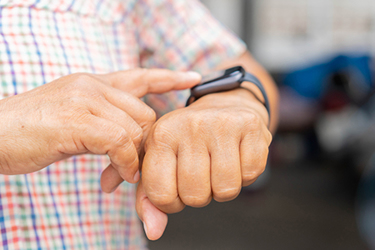Medical Devices In Clinical Trials: Improving Study Outcomes

Amid growing availability, interest, and confusion around using sensors and other devices to improve clinical trials, Datacubed Health offers a roundup of key considerations and compelling use cases.
People’s day-to-day lives have been transformed by the advent of mobile technologies. Years ago, depositing a check required a visit to a bank branch and a face-to-face interaction with a teller. Now millions of consumers deposit their checks by smartphone. Similarly, patients used to need to visit an office to see their healthcare providers. Today, the COVID-19 pandemic is accelerating use of telemedicine, in which providers and patients interact via phone or video calls.
Virtual health technologies are poised to extend and expand that trend – enabling more comprehensive monitoring and management of patients no matter where they are. Wearable sensors and other medical devices are already available to provide consistent updates on heart rate, activity levels, blood glucose, and other vitals. As these devices deliver tremendous value to care management, they also represent a significant opportunity to improve randomized clinical trials. Indeed, some clinical trials are already incorporating medical devices – from consumer-grade watches to medical-grade wearables.
Get unlimited access to:
Enter your credentials below to log in. Not yet a member of Clinical Leader? Subscribe today.
